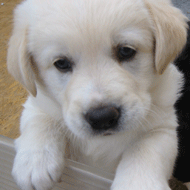
Illegal landings triple since changes to Pet Travel Scheme
Concerns over dog smuggling into the UK have been further fuelled, as it is revealed the number of illegal dogs stopped by Trading Standards has more than tripled since 2011.
According to the AHVLA, 376 dogs were stopped due to non-compliance with the Pet Travel Scheme (PETS), compared to 96 in 2011. These figures relate to any dog entering the country that does not fully comply with the scheme's requirements.
Changes to PETS came into force on January 1, 2012, making it easier for pets to travel around Europe. Many in the veterinary profession raised concerns that the changes could lead to a rise in the number of illegally imported pets.
Previously, dogs could not enter the UK until six months after they had been vaccinated against rabies, whereas the scheme now requires just 21 days.
A BBC Breakfast programme which aired yesterday (January 30) raised concerns over rising numbers of pets being imported illegally with forged passports.
During 2013, a handful of rabies cases reported across the globe triggered unease over the threat to the UK. Reports concerned a dog in Toledo, Central Spain, a kitten found to be carrying the disease in France, and two puppies in the Netherlands that were later confirmed rabies clear.
BVA president Robin Hargreaves said in October 2013: "We have been raising concerns with the Government that the changes in legislation last year had significant unintended consequences in boosting the number of puppies and kittens coming to the UK for sale.
"Although the pet travel scheme is not intended to cover commercial movements, the fact that animals can enter the UK at a younger age has meant that people are abusing the legislation for this purpose with potentially grave consequences."
The BSAVA recently called for Public Health England (PHE) to introduce pre-exposure rabies vaccinations for frontline veterinary staff.
Dr Hilary Kirkbride from PHE said: "We are aware that there are concerns amongst the veterinary community in the UK about the rabies risk from illegally imported animals." PHE says it plans to submit a discussion paper on the subject to the Joint Committee on Vaccination and Immunisation, who will consider the occupational risks.
Defra, however, says the risk of a dog infected with rabies entering the UK is very low, and the risk of rabies passing from pet to human is lower still.
Commenting on the rise in illegally landed dogs in the UK, a Defra spokesperson said: "We carry out stringent checks on dogs coming into the country. The increase in attempts to bring dogs into the country illegally is being driven by the high demand for cheap puppies.
"We would urge anyone looking to buy a puppy to ensure it comes from a reputable supplier and ask to see the puppy interact with its mother."



 The Federation of Independent Veterinary Practices (FIVP) has announced a third season of its podcast, Practice Matters.
The Federation of Independent Veterinary Practices (FIVP) has announced a third season of its podcast, Practice Matters.